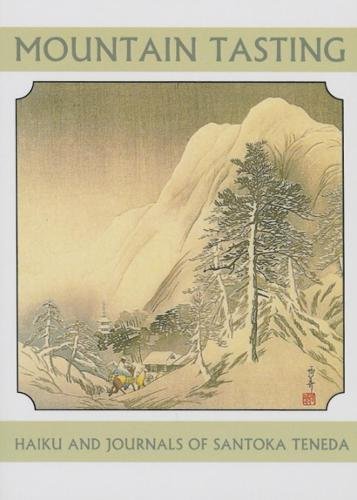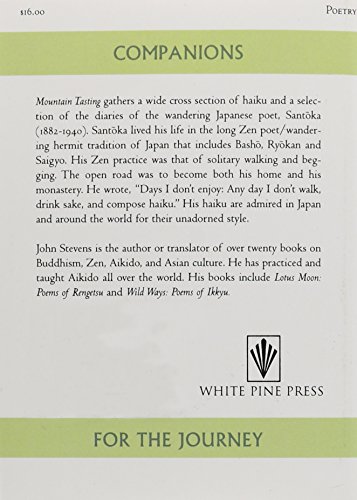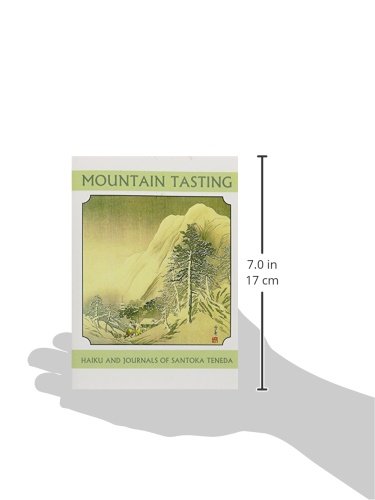Customer Services
Copyright © 2025 Desertcart Holdings Limited




Full description not available
V**R
Glad to find this book, again
Some books lie on your book shelf and others you give away. I found "Mountain Tasting" for the first time in The East West Bookstore on 5th Ave. near 13th street in Manhattan, NY in the 80s (and have no idea if the bookstore is still there...). Just so much real pleasure from the title into the poems and travels of Santoka Teneda (I just had to edit my review (!) because I jumbled "Mountain Tasting" and "The Selected Poems of Li Po" another fine volume). The skill to be here now and also able to set it down in poetry/haiku as alive as the moment it was experienced....priceless :>) Just leave it around and jump in and out of it at your leisure and to get some relaxation.
T**M
Four Stars
An interesting man who experienced many things and remained humbled and content.
W**G
Mountain Tasting: Haiku and Journals of Santoka Taneda (Companions for the Journey) [Paperback]
A fine translation of a wonderful wandering Zen monk/Haiku poet...Santoka Taneda a mystic/O'Sake drinking wanderer extolled the virtues of aimlessness w/focus "kime"!
G**A
This became the perfect form for Santoka’s gifts
And last, coming into the modern period, Santoka Taneda. The late master Masaoka Shiki had brought the sights and emotions of the contemporary world into the traditional form of haiku; after his death in 1902, a second school of practice broke off, the shinkeiko, varying the syllabic pattern and jettisoning the worn-out requirement of the season word. This became the perfect form for Santoka’s gifts. He lived as a mendicant Zen priest, without home or much in the way of possessions, and had a devouring taste for sake. His emblematic poem was: “Days I don’t enjoy: / Any day I don’t walk / Any day I don’t drink sake / Any day I don’t compose haiku.” Surely here the biography is the work: Santoka’s mendicancy gave him to experience and to commemorate those moments of vision that are peculiarly the domain of the way of haiku. But remember, he was walking through the period of Brian Victoria’s ZEN AT WAR as well as the eternal landscape of Japan—the unease of modernity is in them, the darkened background of Santoka’s travels. John Stevens has translated a wonderful selection, MOUNTAIN TASTING: Haiku and Journals of Santoka Taneda (White Pine Press, 2009, in their splendid series Companions for the Journey). Beware of it. It may be, in its quiet, implicit way, as thorough a gauntlet thrown in the path of modern life as poetry may leave for you to find.Glenn Shea, from Glenn's Book Notes at www.bookbarnniantic.com
P**Y
penetrating and occasionally sad life. Zen clears all but the bare bones
A lovely companion into a clear, penetrating and occasionally sad life. Zen clears all but the bare bones; I suppose it shouldn't be odd that so many practitioners like their sake, too.
B**Y
One of the best poetry books I've read in a long time
I encountered mention of this poet in a book about a Canadian author who walked the Shikoku pilgrimage through 88 temples through a period of two months. The poet also walked many pilgrimage routes through Japan, and the story of his ife, the journal he kept, and his amazing poetry make for superlative reading. The translation seems well done (it has been appreciated by very well respected translators of Japanese to English.) Santoka Taneda is perhaps the most popular "contemporary" poet in Japan. This volume gives a good sense of why that is.
Trustpilot
1 month ago
2 weeks ago
1 month ago
1 month ago